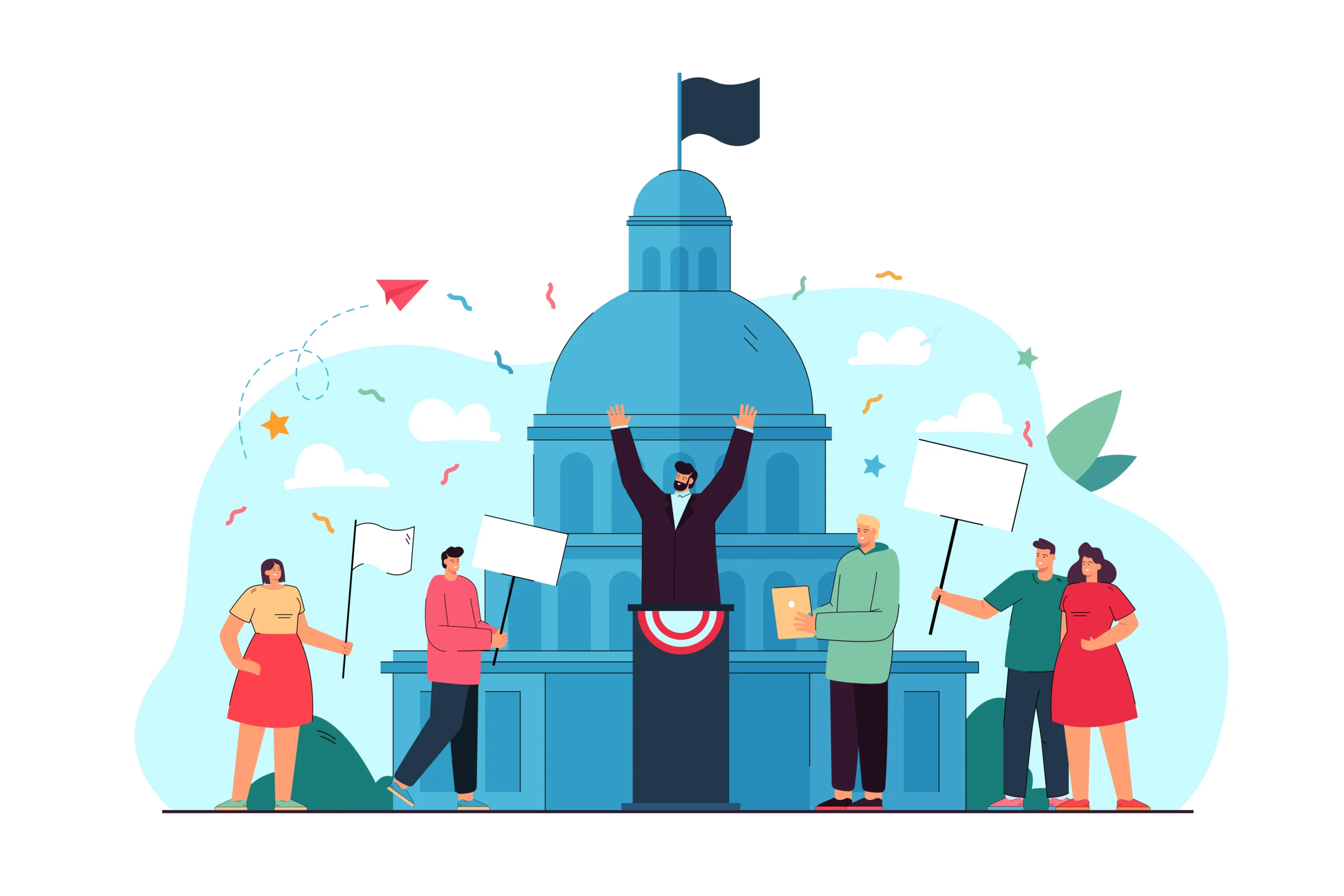Government is a fundamental aspect of organized society, providing the structure and rules that guide human behavior and ensure order. It plays a crucial role in shaping the lives of individuals and communities by creating laws, enforcing rules, and providing services. This article delves into the concept of government, its various forms, and its functions, offering a comprehensive understanding of its role and significance.
Understanding Government
Definition of Government
At its core, government refers to the system or group of people governing an organized community, often a state. It is responsible for creating and enforcing laws, ensuring the security of its citizens, and managing resources. Government operates through various institutions and structures that are designed to maintain social order and address the needs of the population.
Key Functions of Government
Governments perform several critical functions to maintain a stable and functional society:
- Legislation: Governments create laws that regulate behavior, establish standards, and protect rights. This function is typically carried out by legislative bodies such as parliaments or congresses.
- Enforcement: Laws must be enforced to ensure compliance. This function is carried out by various agencies, including police forces and regulatory bodies.
- Judication: Governments provide a system of courts to resolve disputes and interpret laws. This ensures that justice is administered fairly and consistently.
- Public Services: Governments are responsible for providing essential services such as healthcare, education, and infrastructure. These services are vital for the well-being of citizens and the functioning of the economy.
- Defense and Security: Protecting the nation from external threats and maintaining internal security are crucial government responsibilities. This includes managing military forces and intelligence agencies.
- Economic Management: Governments play a role in managing the economy through fiscal and monetary policies, taxation, and regulation. This includes budgeting, economic planning, and addressing economic inequalities.
Forms of Government
Democracy
In a democratic government, power is vested in the people. Citizens have the right to participate in decision-making processes through elections and other forms of civic engagement. Democracies can be direct or representative:
- Direct Democracy: Citizens directly vote on laws and policies. This form is more common in small communities or organizations.
- Representative Democracy: Citizens elect representatives who make decisions on their behalf. This is the most common form of democracy in modern nation-states.
Republic
A republic is a form of government in which the country is considered a “public matter” and the head of state is elected, not a monarch. Republics can be democratic, with elected officials representing the people, or they can have other forms of governance.
Monarchy
Monarchy is a government led by a king, queen, or emperor. Monarchies can be:
- Absolute Monarchy: The monarch has almost complete control over the government and is not bound by a constitution or laws.
- Constitutional Monarchy: The monarch’s powers are limited by a constitution or laws, and they often act as ceremonial figures while elected officials handle governance.
Authoritarianism
In authoritarian governments, power is concentrated in the hands of a single leader or a small group. These governments often limit political freedoms, suppress dissent, and maintain strict control over various aspects of life.
Totalitarianism
Totalitarian governments seek to control all aspects of public and private life. They employ extensive surveillance, propaganda, and repression to maintain control and suppress opposition.
Theocracy
A theocracy is a government where religious leaders or institutions hold political power. The laws and policies are often based on religious principles, and the government seeks to enforce religious conformity.
Structures of Government
Federal vs. Unitary Systems
- Federal System: In a federal government, power is divided between a central authority and regional or local governments. This allows for a balance of power and local autonomy.
- Unitary System: In a unitary government, power is concentrated in a central authority. Local governments may exist, but their powers are delegated by the central authority.
Parliamentary vs. Presidential Systems
- Parliamentary System: The executive branch derives its legitimacy from the legislative branch and is accountable to it. The head of government is usually the prime minister, who is elected by the legislature.
- Presidential System: The executive branch is separate from the legislative branch and is led by a president who is elected independently of the legislature. The president serves as both the head of state and the head of government.
Importance of Government
Social Order and Stability
Government is essential for maintaining social order and stability. It provides a framework for resolving disputes, enforcing laws, and ensuring that societal norms are upheld. Without government, societies would face increased conflict and disorder.
Protection of Rights
One of the key roles of government is to protect the rights and freedoms of individuals. This includes safeguarding civil liberties, such as freedom of speech, assembly, and religion. Governments establish legal systems to address violations of these rights and ensure justice.
Economic Development
Governments play a crucial role in economic development by creating favorable conditions for growth and prosperity. This includes developing infrastructure, implementing economic policies, and providing public services that support economic activity.
Public Welfare
Governments are responsible for promoting the welfare of their citizens through social services, healthcare, education, and other support systems. These services help to improve the quality of life and ensure that basic needs are met.
Conclusion
Government is a complex and multifaceted institution that plays a critical role in shaping society. From creating and enforcing laws to providing essential services and ensuring security, its functions are integral to maintaining order and promoting the well-being of its citizens. Understanding the various forms and structures of government helps to appreciate its impact on daily life and the importance of civic engagement. By recognizing the diverse roles that government plays, individuals can better understand their rights and responsibilities within their communities.



